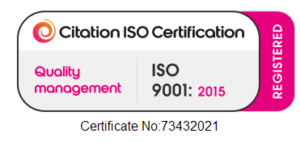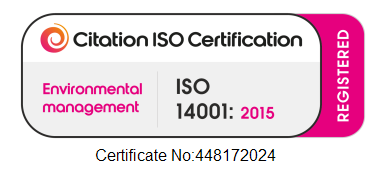SEO is the backbone of your company’s online presence, and if done properly, can land you a pretty sweet spot on Google. Of course, there’s a ton of hard work and optimization (years in fact) involved in the process. In the end, improving your site’s SEO is easier said than done, but not impossible.
So what exactly is SEO?
Oftentimes we hear SEO, which is almost a generic term (today) and comes off as a buzzword. In actuality, it is an acronym for Search Engine Optimization. It is the process of increasing the quantity and quality of traffic to your website through organic search engine results.
This can be done through a number of methods such as keyword optimization, using ALT tags, publishing relevant content, updating your site’s content and even effectively implementing social media into your business strategy.
Today, SEO is more complex than ever before, and gone are the days where simply littering your site’s copy with keywords was enough to land you a front row seat on Google. Google is constantly introducing updates to its SEO requirements and how it ranks sites.
As a result, marketing professionals, small business owners and countless others who depend on organic search engine results as a part of their bottom line must adapt to the ever-changing SEO landscape. In order to ensure your business’ rightful spot on search engines like Google and Bing, here are three tips to help improve your chances ranking higher in Google organic results.
Start Link Building
I’ve been asked this many times before, what’s the point of link building?
One purpose is establishing an executive at your company as a thought leader through submitting bylined articles on relevant topics, you are also doing a few other really powerful things like:
- Further establishing credibility for your company
- Showing your company is a valuable resource
- Building relationships with key stakeholders
- Driving referral traffic
There are a number of other benefits as well. I want to point out two things of interest from the points above. First, establishing your company’s credibility, this is an element of branding that is crucial to be in control over.
For starters, if you’re a growing company, you can use these pieces as a recruitment tool. You can also improve your word-of-mouth and online recommendations.
Second, driving referral traffic is paramount. Referral traffic is how Google reports visits that came to your site, not from search engines. Essentially, when someone clicks a hyperlink to enter a page on a different site, Google can track the click as referral traffic.
Make Your Site Mobile Friendly
Thirty percent of all mobile searches are related to search location, and an estimated 73 billion of people worldwide actually make a phone call to businesses because of a search query. This means there’s a higher probability of someone visiting your physical location or making an order over the phone as a result of organic search results.
For these reasons, it is worth it to ensure your site is mobile friendly.
In ensuring your website, is in fact, mobile friendly, you should first start with a good website builder. Choosing the right website builder can make all the difference. Most website builders come with built-in SEO optimization tools, and others have integrations for an additional fee.
It is important to note that most website builders actually have pre-built mobile responsive templates. This eliminates unnecessary time spent adjusting your site on settings for changes to reflect on the mobile version, but compromise the integrity of your desktop website.
After you make optimizations to your website, test the site as if you’re a user. You should test across a number of platforms like desktop, laptop, mobile (including iOS and Android devices).
Most of all, it is important to have a mobile-friendly site, because this is actually one of the many ways Google ranks sites.
Optimize Your Site’s Voice Search
Voice search is continually growing, in fact, Comscore estimates by 2020, 50 percent of all searches will be voice searches.Searchers oftentimes use the same keywords in mobile search that they’d use for the desktop version.
You should, though, to consider what kind of words you’d use when performing a mobile voice search and utilize these kinds of keywords as well. You wouldn’t use short-tail keywords, but long-tail, as if you’re speaking to someone. This raises two valid points:
- Provide quality content that reads conversationally, so that it is more searchable by Google.
- Find out your most commonly-searched and relevant terms using keyword finding tools like Google Keyword Planner.
Lastly, be sure to use proper headings, and be sure to create pages on very specific topics. This could be as simple as writing a blog post on one of your company’s most commonly-asked questions to inform customers.
The goal is to provide the most relevant and resourceful content on the web. In the 21st Century, having a good-ranking page on Google is almost as valuable as owning a bar of gold. Apply my above hacks, and it may hope that this method will work for you.
Source: Business Achievers










